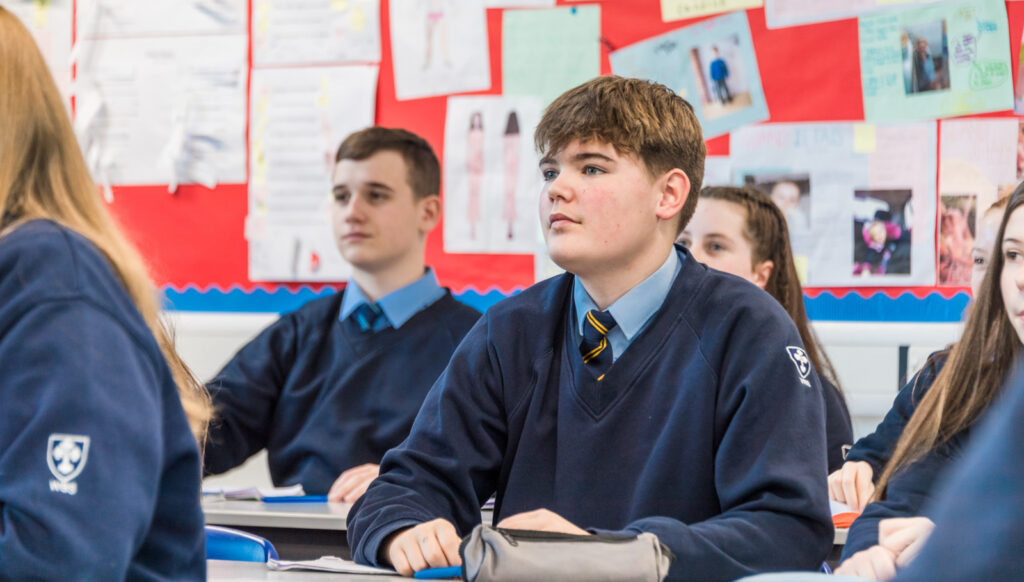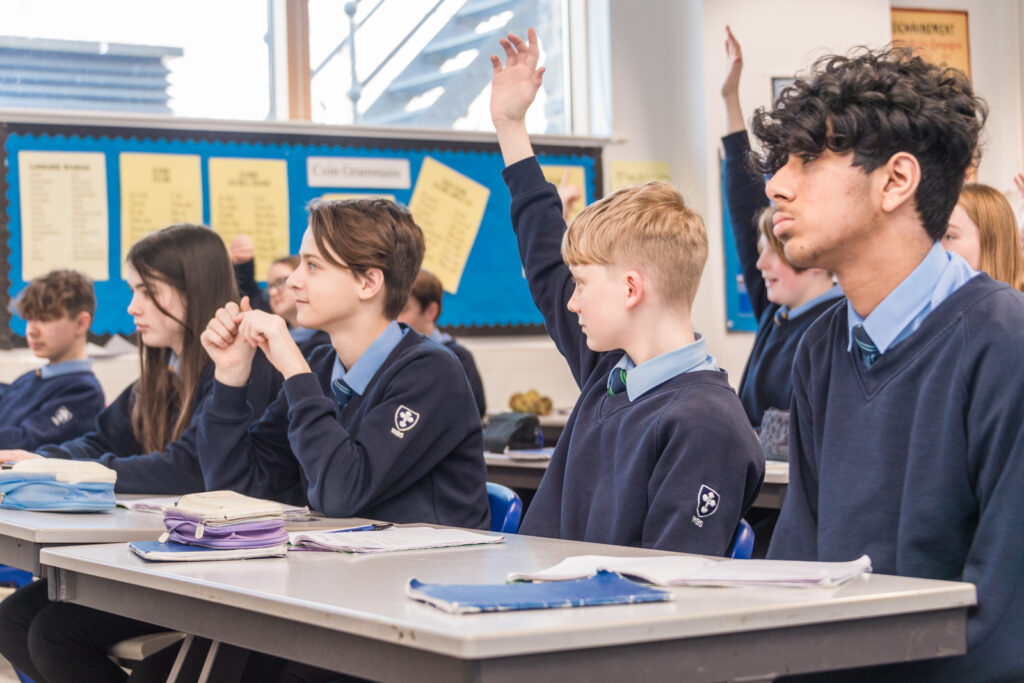Our Curriculum: Empowering Students for Success
“Our students will develop the golden knowledge, the skills and attributes that will enrich their lives, becoming responsible, caring citizens who thrive and who positively contribute”.
Whether a student, a member of staff, or a trustee, we will all seek to inspire and believe in one another to achieve our ambitions and succeed in life. We strive for excellence in all we do and our vision,, which although established and sustained, is to provide the best possible education for all of our students and to remain an exceptional educational establishment locally, nationally, and globally.
What the curriculum is designed to do
At William Brookes School we have designed our curriculum with students’ learning at the centre. We recognise that a curriculum has to be broad and balanced and offer students opportunities to grow as individuals, as well as learners.
Through a combination of learning techniques, we aim to ensure students enjoy learning and feel prepared for life after school. We also intend to offer our students new and exciting experiences through extra-curricular activities that are designed to build resilience, confidence, and self-esteem.
We recognise that students should be challenged in their schooling; learning from failures and celebrating successes. We intend for our curriculum to be empowering, enabling students to develop their interpersonal skills, creativity and independence. We are also very conscious that there is a need to move learning from short to long-term memory via various techniques that highlight the importance of recall.
Teaching our Curriculum
The Six Principles
The teaching of our curriculum is firmly evidence based. This ensures teaching is impactful and learning is efficient and effective. The whole school approach is based on six principles:

Behaviour for Learning

Modelling & Scaffolding

Feedback

Knowledge

Questioning

Explanation & Practice
Inclusive Teaching
Teachers use their subject expertise to ensure all our students, including those with high or low prior attainment, SEND (Special Educational Needs and Disabilities), other additional needs can fully access the curriculum.
Key Stage 3: Years 7, 8 & 9 Curriculum
At Key Stage 3, we deliver a traditional three-year curriculum at William Brookes School because students need to develop broad, rich knowledge and be able to make links between subjects to be successful.
Students are divided into two bands (A and B) and their are approximately eighty students in each.
All students study English, Maths, Science, Geography, History, Computing, Technology, Music, Art, Drama, Dance, PSHE (Personal, Social, Health & Economic Education), and Religious Studeits. Students also study either French or Spanish.
All students have PE (Physical Education) lessons developing their skills in seven sports.
Key Stage 4: Years 10 & 11 Curriculum
We recognise that students will continue to progress throughout their time at William Brookes School. Consequently, we do not place students on a pathway determined by their prior attainment. All students at William Brookes School have the same range of Key Stage 4 choices.
In Year 9 students make their option choices. During Years 10 and 11 all students continue with a core set of subjects: English Literature and English Language, Maths, and Science (most students study a combined science course leading to two GCSEs, the highest attaining scientists will study a separate science course leading to three GCSEs) and core PE (students can opt to study a Cambridge National Diploma in Sport).
Key Stage 5: Years 12 & 13
To find out more about our curriculum offer please click on the subjects below for an overview of each subject.
Students following a Level 3 course normally select the equivalent of three subjects. This can be made up of three A-Level subjects, vocational subjects or a combination of vocational awards and A-Levels. In some cases, students may be advised to study four subjects.
GCSE retakes in English and Maths are also available for those students who are yet to achieve a Grade 4.
Students also have the opportunity to complete the following to enrich, stretch and challenge themselves:
- Extended Project Qualification (0.5 A-Level equivalent)
- Institute Leadership Qualification – See video here.



